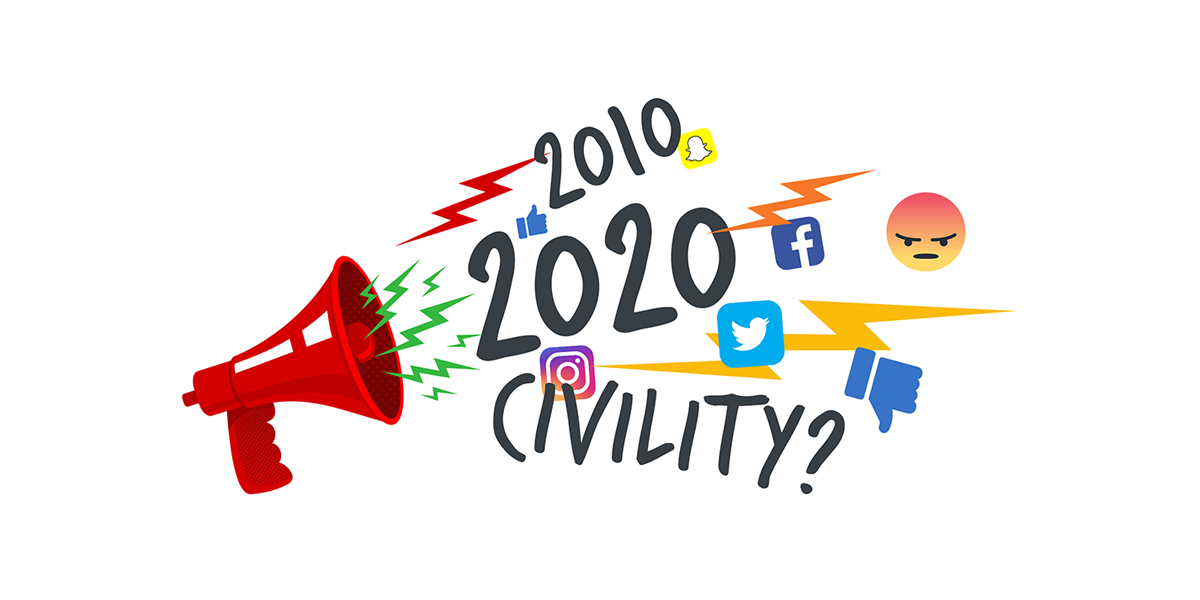In the early days of the Internet, the newly connected world was idealized as a space where you could learn new things, share your thoughts and discuss your ideas – all in a civil manner. In the past ten years though, social media’s influence on the Internet and the use of platforms for economic and political influence has caused a fissure in these early promises. Personal freedom, democracy and trustworthy information have all been undermined online. Conversations have moved from round tables and coffee shops to an anonymous and amorphous digital space, and the rules of etiquette and in-person interaction have not transitioned to our new, virtual world. As the decade comes to a close, and a new one begins, we at Spot.IM want to reflect on how we have collectively reached this point, and how we can work to provide solutions to create a more open environment in the future.
Social Media Becomes a Dominant Force
Social media established itself as a mainstay in our new digital world in 2010 – Instagram launched and then Snapchat the following year. Facebook, whose influence was already pervasive at that time, started to feel some competition, and in 2012 acquired Instagram for $1 billion and went public soon after. The next year, Twitter followed suit becoming a publicly-traded company. Social media had accumulated a massive influence, significantly affecting not only the consumption of content online but the conversations around content as well. This combination of control would set the stage for what was to come.
Turning the Tables on Media Consumption
Social media was no longer just for conversations with friends and family by 2014. Facebook and Twitter had become the new ‘homepages’ of the Internet, as The Atlantic described it, and they had become a key source of news for many people. According to a Pew Research Center study, 62% of adults got their news from social media in 2016, and news publishers were heavily leaning into this trend. When media companies started seeing a huge uptick in referrals from Facebook, some decided to change strategies to account for the new traffic source. In the lead up to the 2016 election, John Herman of The New York Times reported that Facebook had “centralized online news consumption in an unprecedented way.”
Conversations Move to Social Media
As more content started to be consumed on social media, conversations around that content also started to appear on these platforms as well. Users could now communicate directly with media organizations, in addition to their reporters and editors. Before social media, in order to respond to an article, you would have to write a letter to the news organization and your thoughts may or may not have been heard. By the 2010s, you could reach out directly to the publisher on Twitter and, with numerous likes and retweets, it would almost have to address your comment. It would be this same vein of social media that would also create a platform for propaganda machines and trolling.
The Boom Hits a Downturn
As the saying goes, ‘with great power comes great responsibility.’ Instead of connecting people as publishers sought out to do, it was becoming more evident that platforms were being used to divide people. Facebook, Twitter and Google all came under fire for the role their platforms played in spreading misinformation during the 2016 presidential election.
After this controversy, Facebook decided to reprioritize friends and family in its feed, which had serious consequences for publishers who had dedicated staff and resources to figuring out how to master the algorithm and drive pageviews. Many news organizations and publications had to go through rounds of layoffs and some even shut down completely.
Trolls turned conversations on social media into toxic environments, and harassment became synonymous with participating in discussions online. Psychologists started to link trolling on the Internet to what they called the online disinhibition effect. They say this is caused when conversations don’t happen in real-time and the anonymity and invisibility of the Internet eliminate social norms. Four-in-ten Americans had personally experienced harassment online, according to a Pew study in 2017.
On top of everything, there was also the issue of privacy. The Intercept reported that Cambridge Analytica, a political data firm, gained access to more than 30 million Facebook users’ data without their consent and used it for political advertising purposes influencing the 2016 Election.
The Reckoning
The public, news organizations, and the government had all reached a breaking point with social media. In a consumer survey conducted by Spot.IM, 70% of interviewees reported not trusting the news they read on social media platforms. Publishers started working to become more independent, moving to subscription-based models instead of relying on social media to generate pageviews. Widespread trolling and toxic conversations lead several media organizations to get rid of comments on articles all together. The Senate even called Mark Zuckerberg to testify on the Cambridge Analytica data breach. These events, combined with widespread distrust of social media platforms, eventually inspired many organizations to begin working to change the status quo.
Change is in the Air
Social networks and their leaders are now on the frontlines making a concerted effort to find solutions to the incivility of the Internet. Twitter CEO Jack Dorsey announced a new research team to create a set of open and decentralized standards for social media companies, claiming the move would help “promote healthy conversation”. Instagram announced it would remove “likes” to make the platform less of a competition, and Facebook is working to change its relationship with publishers by launching a dedicated space for news, and has also hired third-party fact-checkers to help stop the spread of misinformation.
Spot.IM’s Vision for the Future
Technology has empowered millions of people to communicate in a whole new way – an innovation that has had both positive and negative effects. It has helped improve connectivity and give everyone a voice, but hasn’t helped facilitate healthy conversations. It is our belief at Spot.IM that new technology has the capacity to create an environment for more civil and egalitarian conversations, and create more forums for them. We are passionately working to help shape and build a more cultivated space for conversations online. We believe the open web can still be a place for an open exchange of ideas and healthy conversations. Online communities can be respectful, truthful, socially minded and empathetic. As we go into 2020, we want to continue to help support a diverse group of publishers and empower them to provide the best environment to host civil conversations.


